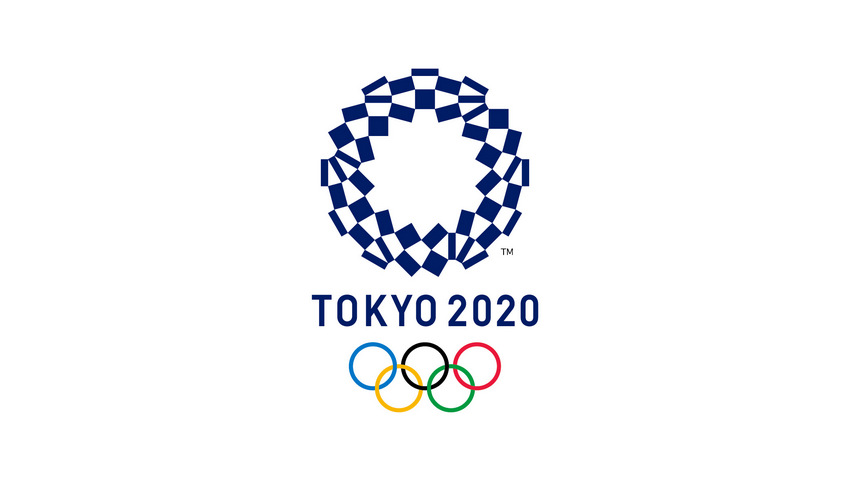
IOC and Tokyo 2020 agree on measures to deliver Games fit for a post-corona world
- OLYMPIC GAMES
The IOC Coordination Commission and the Tokyo 2020 Organising Committee agreed today, 25 September, on a series of measures to make the Olympic Games Tokyo 2020 fit for a post-corona world.
Developed in response to the postponement of this year’s Games due to the coronavirus pandemic, over 50 measures have been designed to maximise cost savings and increase efficiencies in Games delivery.
In his opening remarks to the meeting participants, IOC President Thomas Bach acknowledged the outstanding progress being made by Tokyo 2020, reinforcing his belief that next year’s Olympic Games will be the best prepared ever. He also emphasised that the coming months will require flexibility and creativity from everyone involved as the Tokyo organisers deliver Games fit for a post-corona world. In doing so, the IOC President offered his gratitude to all stakeholders, who are fully aligned with the measures being envisaged.
Today’s meeting provided the Coordination Commission with the opportunity to review the current list of measures, with more opportunities to be identified in the lead-up to the Games. These have been split into four main categories: stakeholders; infrastructure; promotion; and other areas of interest.
Examples of the initial measures include the reduction of stakeholder personnel attending the Games, streamlining transport services, adjusting spectator activities at competition venues and hosting a number of pre-Games meetings online.
Speaking after the meeting, Tokyo 2020 Coordination Commission Chair John Coates said: “Built from the principles outlined by the Joint IOC and Tokyo 2020 Steering Committee, these optimisations and simplifications mark an important step towards delivering a safe and successful Games in 2021. We owe it to the public to enact these measures during these challenging times, that’s why we’ve left no stone unturned and will continue to look for further opportunities over the coming months. The unique task of reorganising an Olympic Games has called for the Olympic Movement to be stronger together – this milestone illustrates our collective commitment. The ‘Tokyo Model’ will not only deliver a Games fit for a post-corona world, it will become a blueprint that will benefit future Organising Committees for many years to come.”
Tokyo 2020 President Mori Yoshiro added: “Considering the current state of the world, we have been discussing how we will be able to deliver a safe and secure Games that can win public understanding in these challenging times. After we established a broader direction that the Games in 2021 should be simplified, we have been working closely together with the IOC, the IPC and various stakeholders such as IFs, NOCs, NPCs, partners and broadcasters, in every possible area that can contribute to simplifications. This process will benefit future society – becoming a role model for future global events as people adapt to living in the new normal. We will make all efforts to ensure that in the future the Tokyo 2020 Games will be a legacy. We will continue to work hard on simplifications towards next year and ask for the continued cooperation of all those involved in the Games.”
The measures were developed with support from the International Paralympic Committee (IPC), Tokyo 2020, the Tokyo Metropolitan Government (TMG) and the Government of Japan. Important input was also obtained from key Olympic stakeholder groups, including National Olympic and Paralympic Committees, International Federations, Rights-Holding Broadcasters, media and TOP Partners.
With these measures now agreed, Tokyo 2020 will start estimating the provisional cost-savings that can be achieved, with a view to providing an update at the IOC Executive Board meeting in October.
COVID-19 Countermeasures
The IOC Coordination Commission also received an update on COVID-19 countermeasure planning. This detailed how the IOC, together with Tokyo 2020 and the All Partners Task Force, which includes the World Health Organization (WHO), the IPC, the Government of Japan and the TMG, with input from experts in relevant areas, have reviewed a range of scenarios. These consider the situation in Japan and globally, illustrating potential scenarios that could be in effect during the Games next year.
This strategic approach has been crucial to identifying possible countermeasures necessary to protect the health of all Games participants. It will also help build a framework for operational planning.
The possible countermeasures have been grouped into seven areas: travel/country access; physical distancing; personal protective equipment/cleaning; food and beverage; testing/tracking/isolating; information provision and vaccines.
As part of this process, the close cooperation between the IOC, International Federations and other event organisers was highlighted. This has provided vital input into an ongoing review of the best practices and key learnings taken from the resumption of sporting events in Japan and around the world.
Looking ahead, the Commission acknowledged that as countermeasures are further developed and reviewed, important discussions will continue to be conducted on a stakeholder-journey based approach, with a focus on athletes, Games-related personnel and spectators. These preparations will continue to evolve in line with the monitoring of the global situation and its impact on Games preparations.
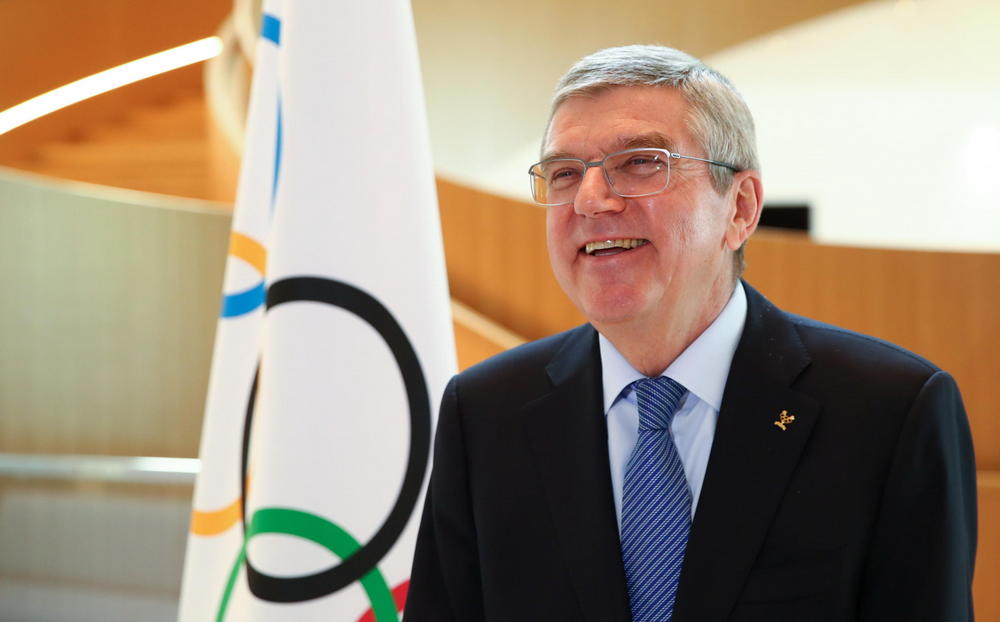
President Thomas Bach writer to Olympic movement: olympism and corona
- IOC
Since the first “Olympism and Corona” message in April, our message about the positive health, social and economic impacts of sport on society at large has gained considerable momentum. What we can see now is that sport is widely recognised as an essential factor in fighting the pandemic, which still persists in many countries. Sport is also accepted as an integral part of the solution for the crisis recovery, which is underway in other countries.
Thankfully, we are also seeing live sports events taking place again. The very positive reception of these events clearly demonstrates that not only athletes and sports organisations but also the public at large have been longing for the return of sport as an integral part of our lives. We also see that sport can be organised safely, even under the ongoing restrictions. This should give all of us confidence in our preparations for future events, including the Olympic Games Tokyo 2020. I would like to thank all the people who have brought us this far by working tirelessly to keep our societies going, and all of you in the sporting community who are working with great responsibility and creativity to organise sports events, safeguarding the health of all concerned.
Based on this early success, we are looking forward to the time when the many restrictions, which are essential now, can be eased. But we have to continue to act in a responsible way when it comes to planning and scheduling our sports events. The virus is not defeated yet. We must continue to contribute to its containment and be a part of the solution for the recovery from the crisis. In our planning and scheduling, we all have a great responsibility, not only for our respective stakeholders, but for the entire sports community. From experience, we know that every mishap that affects one of us affects all of us – and has the potential to undo the great progress we have made together in the past few months.
In this context, we are monitoring the potential of innovative testing methods for the safe organisation of events. In addition to the already existing test methods, there are a number of so-called rapid tests already on the market or under development. When used in combination with other virus countermeasures, such rapid tests give us an important additional tool to ensure a safe environment for everyone involved. Further to this good news with regard to testing, there are very encouraging signals from the scientific and medical community about the availability of approved vaccines in the next few months, maybe even before the end of this year.
Taken together, the developments in testing and in vaccines will greatly facilitate the safe organisation of sports events. We should all take the timing of the availability of these new tools into consideration when it comes to the scheduling of our events. Therefore, to the many different scenarios the IOC is planning for, we have added one to fully exploit the potential of testing and vaccines. On the one hand, these recent weeks have shown that we can organise big sports events in a safe way even without a vaccine. On the other hand, we have to realise that even testing methods and vaccines are not the “silver bullet” that will solve all our problems. We just do not yet know the full impact of any potential vaccine. But, altogether, there are good reasons for cautious optimism.
The IOC will continue to study these developments closely. We are also evaluating what consequences they would have for the organisation of sports events, ranging from the need to change certain rules of our respective organisations to medical, economic, social and logistical aspects. To this end, we continue to cooperate closely with the World Health Organization, public authorities, medical and scientific experts, as well as pharmaceutical companies. We are also drawing from the experience of those sports organisations that have recently organised successful events. We of course will share any insights with all those concerned among you, so that all of us in the Olympic Movement can benefit. We have shown in recent months that we are indeed #StrongerTogether. In this spirit of solidarity, we should continue to make our contribution to the containment of the virus and to the recovery from the crisis. In advance, I would already like to thank you very much for your continued cooperation in our shared endeavour to give hope and confidence to the world through sport.
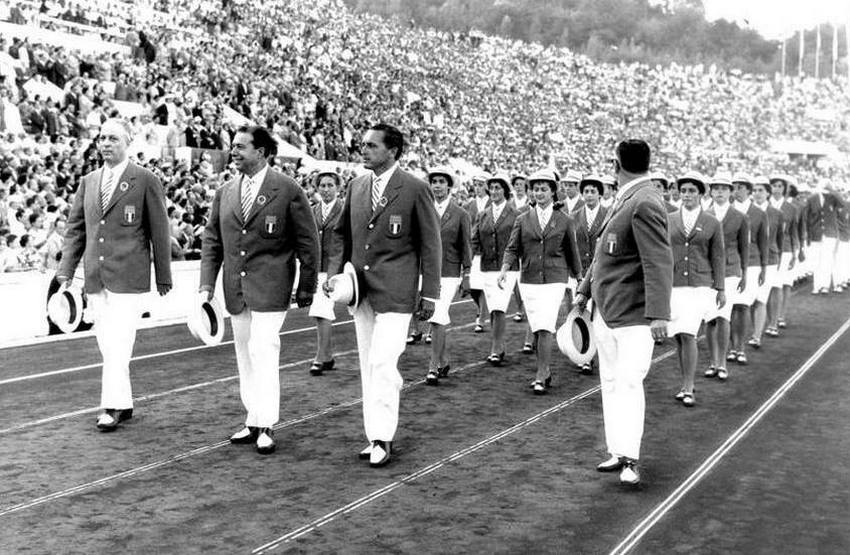
The beginning of the Olympics that charmed the world. The miracle of a united Germany
- 60 years since the Olympic Games in Rome
Sixty years have passed since that unforgettable afternoon on 25th August 1960, which entered not only Italian sporting history, but Italian history as a whole. At 5.46pm, the Games of the XVII Olympiad in Rome were officially opened, among the most fascinating and engaging games of the 20th century. Italy, fresh from the organisation of the VII Winter Games in Cortina d'Ampezzo in 1956, once again found itself four years later in the world’s spotlight for a unique and once-in-a-lifetime event.
It was a sort of redemption after the tragedy of the Second World War, a slow and difficult reconstruction, and the international distrust of a country that, up to fifteen years before, had been enslaved to a dictatorship. Sport played a key role in regaining the trust of international circles. A decisive role was played by the policies of the Prime Minister, Alcide De Gasperi, and the Undersecretary of the Council Presidency, Giulio Andreotti. Contrary to initial intentions, they avoided the liquidation of CONI, providing Giulio Onesti with new means, who was firstly appointed commissioner and then elected president.
This choice not only guaranteed the Authority with autonomy, but allowed Onesti to establish himself as a leading figure at an international level, developing a policy of amity with the emerging countries of the Mediterranean area. Rome, then, after the defeat of the 1904 candidacy, the withdrawal after the award of 1908 - following the eruption of Vesuvius in 1906 - and the lack of organisation in 1944 due to the war conflict, applied for the 1960 edition.
The Eternal City had Lausanne, Detroit, Budapest, Brussels, Mexico City, Tokyo and Toronto as adversaries. On 15th June 1955 in Paris, during the 50th session of the IOC, Rome received so many votes that it won the third round with 35 votes against 24 for Lausanne. This represented a new and great opportunity for an Italy in full economic boom.
The city was equipped with infrastructures and facilities that designed its urban structure for years, still recognisable today, thanks to the work of the architectural and engineering genius of leading figures. These included Enrico Del Debbio, Annibale Vitellozzi, Pier Luigi and Antonio Nervi, Vittorio Cafiero, Amedeo Luccichenti, Vincenzo Monaco and Luigi Moretti, to name but a few. 5,338 athletes took part in the Rome Olympics, including 611 women, representing 83 nations, which would have been 84 if Luim Esajas, the only athlete from Suriname, had managed to reach Rome. Morocco, San Marino, Sudan and Tunisia participated for the first time, while Barbados, Jamaica and Trinidad and Tobago chose the Antilles as their sole representative. Rhodesia united the northern and southern states under one flag.
The representative with the highest number of athletes was Germany with 293, followed by the United States (292), the USSR (283) and Italy (280). Seventeen sports were hosted: water sports (diving, swimming and water polo), athletics, basketball, boxing, canoeing, cycling (road and track), equestrian (dressage, eventing, show jumping), fencing, field hockey, football, gymnastics, modern pentathlon, rowing, sailing, shooting (still target and clay pigeon), weightlifting and wrestling (free and Greco-Roman).
On that day the city was in fervent anticipation, while the organisers’ adrenaline rose bit by bit. There were the final details to fix, but above all the air was filled with the emotion of a city that, representing an entire country, had invested all of itself in the Olympics. An hour after the opening of the Olympic Stadium gates, athletes coming from the Village began to serpentine on foot towards the Foro Italico, crossing the Tiber at Ponte Milvio, and then positioned themselves at the Stadio dei Marmi to wait for the teams' parade.
According to tradition, Greece opened the parade, followed in Italian alphabetical order by the rest of the teams. At one point, the representative of the Republic of China appeared, but the sign preceding them bore the inscription Formosa since the delegation from Taiwan was forbidden from parading with the sign of the Republic of China. When the delegation was near the Authority Tribune, an official showed a large white sheet of paper with the handwriting “Under protest”.
sfilata germania But the biggest shock was to see the two united Germanies parade together (after the grumbling of the East), so much so that the President of the Republic, Giovanni Gronchi, exclaimed, “But this is a miracle!” and in contrast, IOC Chairman Avery Brundage commented, “Sometimes in sports, we can do things like that.” Almost all the delegations had now positioned themselves in the centre of the stadium, while the Italian team was just a short distance away.
Among the jubilation of the 65,000 spectators present, Italy, led by fencing champion Edoardo Mangiarotti - winner of 11 Olympic medals - made its entrance to roaring applause that greeted the athletes in blue jackets and white trousers. As was ceremonial, it was time for the opening speeches, entrusted to Giulio Andreotti and Avery Brundage, which were followed by the statement of President Gronchi who proclaimed the opening of the Games.
The Olympic pennant was hoisted and the 43-year-old Adolfo Consolini - who won gold in London in 1948 and silver in Helsinki in 1952 - pronounced the athlete oath, with the simultaneous flight of 5000 white doves and loudspeakers that spread the sound of all the bells of Rome. Finally, the most exciting moment of the ceremony was the arrival of the Olympic flame, which, in its journey between the Aegean Sea and Magna Graecia, brought to mind the champions of old. The last torch-bearer, Giancarlo Peris, was not an established champion, but rather a boy from Civitavecchia who had won the provincial 1000m cross-country running championships, as had been previously established (watch him recall the event in a video interview with Marco Pastonesi on IlFoglio.it)
Giancarlo Peris Stadio Olympico It was an image that represented how the reconstruction of Italian sport had started from the bottom. A few years later (1966), with the establishment of the Youth Games, the innovation strongly desired by the Secretary General of CONI, Bruno Zauli, would commence. That sort of relay race between the veteran Consolini and the young Peris symbolically depicted the history and future of sport to celebrate the present - that of an unforgettable Olympics.
Medals won by Italians in Rome 1960
Romano Sgheiz, Ivo Stefanoni, Franco Trincavelli, Fulvio Balatti, Giovanni Zucchi Bronze - Rowing: Coxed four
Tullio Baraglia, Renato Bosatta, Giancarlo Crosta, Giuseppe Galante Silver - Rowing: Coxless four
Valentino Gasparella Bronze - Cycling::sprint
Giuseppe Beghetto, Sergio Bianchetto Gold - Cycling: tandem
Sante Gaiardoni Gold - Cycling: 1,000m individual time trial from standstill
Sante Gaiardoni Gold - Cycling: sprint
Luigi Arienti, Franco Testa, Mario Vallotto, Marino Vigna Gold - Cycling: 4,000m team pursuit
Antonio Bailetti, Ottavio Cogliati, Giacomo Fornoni, Livio Trapè - Gold - Cycling: 100km team time trial
Livio Trapè Silver - Cycling: individual road race
Franco Menichelli, Giovanni Carminucci, Pasquale Carminucci, Gianfranco Marzolla, Orlando Polmonari, Angelo Vicardi Bronze - Gymnastics general team competition
Franco Menichelli Bronze - Gymnastics: Floor
Giovanni Carminucci Silver - Gymnastics: parallel bars
Amedeo Ambron, Danio Bardi, Giuseppe D'Altrui, Salvatore Gionta, Giancarlo Guerrini , Franco Lavoratori, Gianni Lonzi, Luigi Mannelli, Rosario Parmegiani, Eraldo Pizzo, Dante Rossi, Brunello Spinelli Gold - Water polo
Giuseppina Leone Bronze - Athletics: 100m
Francesco Musso Gold - Boxing: Featherweight
Nino Benvenuti Gold - Boxing: Welterweight
Franco De Piccoli Gold - Boxing: Heavyweight
Primo Zamparini Silver - Boxing: Bantamweight
Sandro Lopopolo Silver - Boxing: Lightweight
Carmelo Bossi Silver - Boxing: Light middleweight
Giulio Saraudi Bronze - Boxing: Light Heavyweight
Livio Berruti Gold - Athletics: 200m
Edoardo Mangiarotti, Giuseppe Delfino, Carlo Pavesi, Alberto Pellegrino, Fiorenzo Marini, Gianluigi Saccaro Gold - Fencing: team épée
Edoardo Mangiarotti, Luigi Carpaneda, Alberto Pellegrino, Aldo Aureggi, Mario Curletto Silver - Fencing: team foil
Giuseppe Delfino Gold - Fencing: épée
Irene Camber, Antonella Ragno - Lonzi, Velleda Cesari, Bruna Colombetti, Claudia Pasini Bronze - Fencing: team foil
Roberto Ferrari, Giampaolo Calanchini, Wladimiro Calarese, Pierluigi Chicca, Mario Ravagnan Bronze - Fencing: team sabre
Abdon Pamich Bronze - Athletics: race walking 50km
Wladimiro Calarese Bronze - Fencing: individual sabre
Raimondo D'Inzeo, Piero D'Inzeo, Antonio Oppes Bronze - Equestrian Sports: team show jumping
Raimondo D'Inzeo Gold - Equestrian Sports: Nations Grand Prix
Piero D'Inzeo Silver - Equestrian Sports: Nations Grand Prix
Galliano Rossini Silver - Clay Pigeon Shooting
Antonio Ciciliano, Antonio Cosentino, Giulio De Stefano Bronze - Sailing: Dragon class
Sebastiano Mannironi Bronze - Weightlifting: Featherweight
Aldo Dezi, Francesco La Macchia Silver - Canoe C2: 1,000m
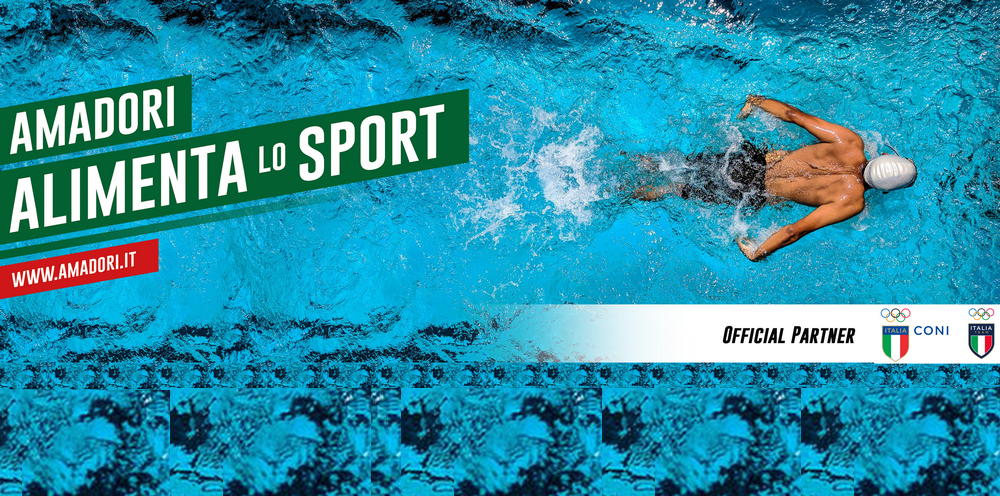
Amadori feeds sport. The partnership that will accompany the Italia Team to the Tokyo Games is now underway
- CONI
Amadori, one of the leaders in Italy in the agri-food sector and specialist in the poultry sector, becomes the “ambassador” of high-quality white meat and the promoter of healthy lifestyles. It is launching the project “Amadori alimenta lo Sport” (“Amadori feeds sport”), with which it intends to promote the winning combination of varied and balanced nutrition and regular physical activity.
The kick-off is the announcement of the partnership between Amadori and CONI: the Food Group, founded in Cesena over 50 years ago, joins the panel of official partners of the Italian National Olympic Committee.
Amadori has also become the official supplier of Casa Italia at the next Tokyo Games and of the Olympic preparation centres, where the athletes of the Italia Team - the national Olympic team - are currently preparing, in their respective disciplines, for the most important sports event in the world.
The partnership with CONI and the Italia Team is part of a wide-ranging project, which will be developed in the coming months and will see Amadori involved together with sports institutions and Ambassadors from the world of sport, nutrition and lifestyle, in important events and appointments dedicated to health and wellness, for the promotion of a varied and balanced dietary model.
Amadori wants to be a reference point for millions of Italians who believe in a balanced lifestyle, in every aspect of everyday life, and in the nutritional value of white meat, which is an irreplaceable element in a varied and complete diet.
This is a large community that includes sportsmen and -women, amateur athletes, professional athletes and our national champions - the summit of a movement that makes health and wellness care a cornerstone of their daily lives.
“Our top-class supply chains are characterised by differentiating advantages in their category, which meet the needs of quality, safety and taste and provide high-quality proteins and essential nutritional elements for various people’s daily diet: from athletes of all levels to pregnant women, from the more mature population to children,” explains Corrado Cosi, Central Director of Amadori Strategic Marketing and R&D. “For all of them, our company promotes the ‘culture’ of high-quality white meat through the different lines of products coming from the Amadori integrated supply chain, 100% Italian and certified at every stage of production”.
These are the top-class Amadori chains:
- “Quality 10+”, with many proposals for chicken and turkey, reared on earth without the use of antibiotics and fed on non-GMO and vegetable feed;
“Il Campese”, outstanding supply. The slow-growing “Il Campese” chickens are reared in the open air without the use of antibiotics and fed with vegetable and GMO-free feed, and are processed using only renewable energy sources;
the “BIO” range from Amadori organic chicken farms, where the birds are reared outdoors and fed with legumes and cereals from organic farming.
Thanks to the differentiating values in its offers, Amadori has become the guarantor for anyone seeking to combine balanced nutrition, healthy lifestyle and daily exercise: “I think about training and keeping in shape, Amadori takes care of my diet.”
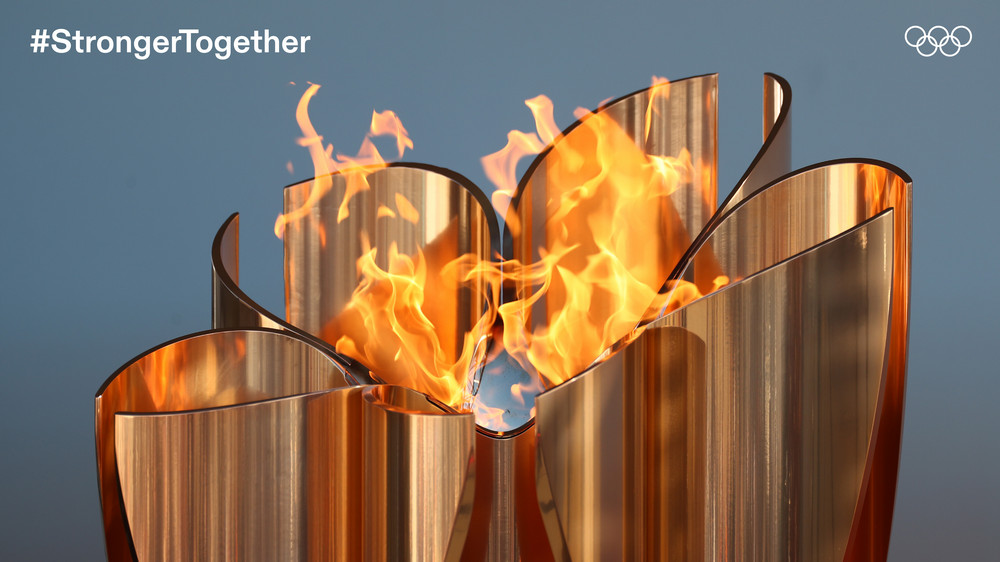
Tokyo 2020 Marks One Year to Games
- OLYMPIC AND PARALYMPIC GAMES
Today, 23 July, marks one year to go until the postponed Olympic Games Tokyo 2020 begin in 2021. Throughout the day, the Olympic Movement will be coming together to mark this key date through a series of activities taking place worldwide on digital channels.
“With our Japanese partners and friends, we agree that we have to adapt the planning of the Olympic Games Tokyo 2020 to the requirements of the global crisis, while maintaining the unique spirit and message that define our mission. We are working to optimise the operations and services without touching on sports and athletes. In this way we can, together with the Organising Committee, turn these postponed Olympic Games Tokyo 2020 into an unprecedented celebration of the unity and solidarity of humankind, making them a symbol of resilience and hope. Showing that we are stronger together”.
23 July also marks the start of the IOC’s #StrongerTogether campaign. This will recognise the importance of solidarity and unity during these difficult times, acknowledging the power of sport, and in particular the Olympic Games, to bring people together.
The Olympic flame will once again lead the day's activities and help shine a light on the resilience and strength of the athletes as they continue to prepare for the Games. In addition to the Olympic and Tokyo 2020 channels, Olympic Movement stakeholders will also be activating across their digital and social media platforms over the coming days to show their support for all the athletes and Tokyo 2020. Rights-Holding Broadcasters, for example, will mark the date with original programming and interviews, covering the challenges athletes have faced during the pandemic and joining the #StrongerTogether campaign through dedicated news coverage of the Tokyo event for their audiences, both on linear TV and digital platforms.
A key component of today’s activities took place in Tokyo. There, the local organisers held a live media event at the Olympic Stadium, where they premiered a video showcasing support for all the athletes around the world. This featured the Olympic flame and inspirational Japanese athlete Rikako Ikee, with coverage of the event broadcast on the Olympic Channel.
The @Olympic Instagram account will also feature live chats with a number of top athletes throughout the day. These include Japanese gymnasts Murakami Mai at 6 p.m. and Uchimura Kohei at 7 p.m. (both JST [GMT+9]) as well as USA’s Simone Biles (gymnastics) at 2 p.m. and Nathan Adrian (swimming) at 3 p.m. (both EDT [GMT-4]).
The @Olympics Twitter account will be teaming up with past and future Olympic Games host cities and Olympic Movement stakeholders to re-create the historical journey of the Olympic flame between 8 a.m. and 6.30 p.m. CEST [GMT+2]. The flame will serve as a symbol of solidarity, hope and diversity within the Olympic Movement and around the world, conveying the global sentiment of being #StrongerTogether.
In addition, Twitter users will be rewarded with a surprise Olympic flame moment when they tag @Olympics and use #StrongerTogether and 🔥 in any tweet. They will receive an automated response featuring a video of an Olympic flame-lighting ceremony moment from past Games.
The Olympic Channel is also preparing to relive some of the most inspiring, exciting and unforgettable Olympic moments during the 16-day period in which the Tokyo 2020 Games were meant to take place. Athletes including Nadia Comaneci, Leander Paes and Ryan Millar will also share the stories behind their great Olympic memories.
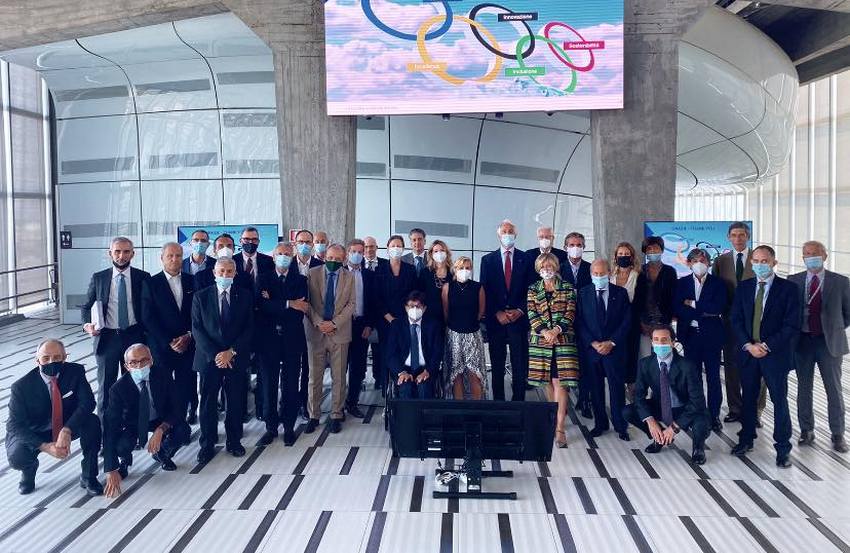
2026 days before the opening of the Games, first Board of Directors’ meeting after lockdown
- MILANO CORTINA 2026
2026 days before the opening ceremony of the 2026 Milano Cortina Winter Olympics, the Board of Directors of the Foundation that organises the Games met in the iconic Milanese headquarters of Pirellone for two days of work under the guidance of President Giovanni Malagò. During yesterday's session, and again this morning, the management led by CEO Vincenzo Novari gave the directors extensive and detailed information on the progress of the Olympic and Paralympic project, which continued without delay even during the lockdown, and on the lines of development for the future.
“We are optimistic, positive and proactive,” said President Malagò. “There is great curiosity and interest in this Olympics because, with the double candidacy of Milan and Cortina, we have welcomed a new era: the project of a great innovative event, full of energy on a sporting level and light from an economic and structural point of view, takes off in concrete terms. Build less, build better, and leave a legacy for the future - these are the focal points. This is a vision to which all councillors, both representatives of the territories and institutions and those of sport, have positively contributed during these past two days”.
Milano Cortina 2026 is the first Winter Olympics that moves from compliance with the 2020 Agenda of the International Olympic Committee and the New Norm, the 2018 reform that aims to make the Olympic and Paralympic Games a major event that is sustainable, flexible and efficient, both operationally and financially, while creating more value for host cities in the immediate and long term.
“It's going to be a choral Olympics. We want Milano-Cortina 2026 to be not just the Milan or Cortina Games, but the whole of Italy,” stressed Vincenzo Novari. “It is a unique opportunity for development for a country that must start again: that is why our work begins immediately and will leave a positive legacy well beyond 2026. The project that we have developed, and that the Council fully embraces, combines sporting excellence and economic efficiency, the two criteria that will guide all our choices. The aim, with the help of the IOC, the Paralympic world, the Sports Federations and the representatives of the Territories, is to achieve an unforgettable edition of the Games. It will be the first Games that, as far as operating the event is concerned, will not use a cent of public money, leaving a light and positive influence”.
At the end of the two days - which also provided an opportunity to take stock of the projects and events that will accompany the Games in the area - the Foundation's Board of Directors unanimously approved the President's report and, by a majority, some amendments to the statutes of a technical nature, as well as listening to the report of the Project Director, Diana Bianchedi. The Board of Directors, which has already scheduled its next meeting to take place by the end of October, was attended - in addition to President Malagò and CEO Novari - by the President of the Italian Paralympic Committee, Luca Pancalli, the Federations, the sports area councillors and those representing the Government and the territories that will host the Games (Lombardy Region, Veneto Region, Municipality of Milan, Municipality of Cortina d'Ampezzo, Autonomous Province of Bolzano and Autonomous Province of Trento).
Also present was Piers Jones, Head of Games Delivery of the IOC: “We work in close synergy with the Organising Committee. An Olympic Games is the greatest challenge a country can face in times of peace. It provides an extraordinary opportunity for the sports movement and for the whole of Italy. The IOC greatly appreciates the work done so far and stands by the Foundation so that Milano Cortina 2026 will be an example for all future Games”.

Tokyo 2020, program also confirmed for 2021. Opening with softball, 1st medal from the shooting range
- OLYMPIC GAMES
Same schedule to be used for 2021. The Organising Committee of the Olympic and Paralympic Games in Tokyo 2020 confirmed that the programme will be kept the same, despite being postponed until next year due to the Covid-19 pandemic.
The Organising Committee, the IOC and the International Paralympic Committee agreed in April that, given the critical impact of the programme on all aspects of preparation, each session of the 2021 competition would, in principle, be scheduled as originally planned for 2020. This had an impact on the programme which, apart from some adjustments for certain events mainly due to operational reasons, was collectively confirmed. While preparations for the Games continue, Tokyo 2020 is working to resolve any remaining issues, including those related to the period of use of the competition venues.
The competitions will start at Fukushima Baseball Stadium with softball at 9am local time on 21st July 2021, two days before the Opening Ceremony.
The preliminary football matches will begin on the same day, with the preliminary rowing stages and the archery ranking rounds to be held on 23rd July, the official start day of the Olympic event.
The first medal will be awarded in the 10-metre female air rifle the following day (with the final starting at 8:30 local time).
Six other sports will also be awarded on 24th July: archery, cycling, fencing, judo, taekwondo and weightlifting, for a total of 11 medal events.
The same day will also see the start of urban sports, an exciting new feature of Tokyo 2020, with men's and women's 3x3 basketball. Street skateboarding will make its debut on the 25th and 26th July. Following these are the BMX Freestyle (park) (31st July and 1st August), skateboarding (park) (4th and 5th August) and sport climbing events (3rd to 6th August).
Fans around the world will then focus on “Super Saturday” and “Golden Sunday” on 31st July and 1st August, days when an exciting series of medal events will take place. 21 medals will be awarded during Super Saturday, including events debuting at the Games such as the mixed judo team, the mixed triathlon relay and the mixed trap team, which will help make Tokyo 2020 the first Olympics in history where gender equality in the total number of athletes will be respected. On the same day, the men's football quarter-finals will be held in four different venues in Japan. Golden Sunday, on the other hand, will award 25 gold medals, including the men's 100-metre athletics, the men's and women's gymnastics finals, and the men's single tennis final. Golden Sunday will also be the final day of fencing and swimming, with five finals planned.
The second part of the Games, which will start on 30th July, will see the semi-finals and finals of wrestling, karate and other team events, as well as the athletics events that will be held at the Olympic Stadium, the main venue of the Japanese Games.
The athletics finals will be held in all sessions, with the exception of the 30th and 31st July, during which they will only take place in the morning. The 4x100 men's and women's relay race will take place on the evening of 6th August.
The second “Super Saturday” is scheduled for Saturday 7th August, on the eve of the Closing Ceremony, and will ensure no fewer than 34 medal events, the highest number awarded on a day in Tokyo 2020. These include the men's basketball, football and volleyball finals, the women's marathon, the baseball final, the individual all-around rhythmic gymnastics and the synchronised swimming team free routine. The closing day, however, will begin with the men's marathon scheduled in Sapporo and will end with the men's water polo final which will start at 4:30pm.
The prize-giving ceremony for the women's marathon will be held, for the first time in Olympic history, during the Closing Ceremony, together with the men's one, reiterating gender equality among athletes and making this edition of the Games truly memorable.
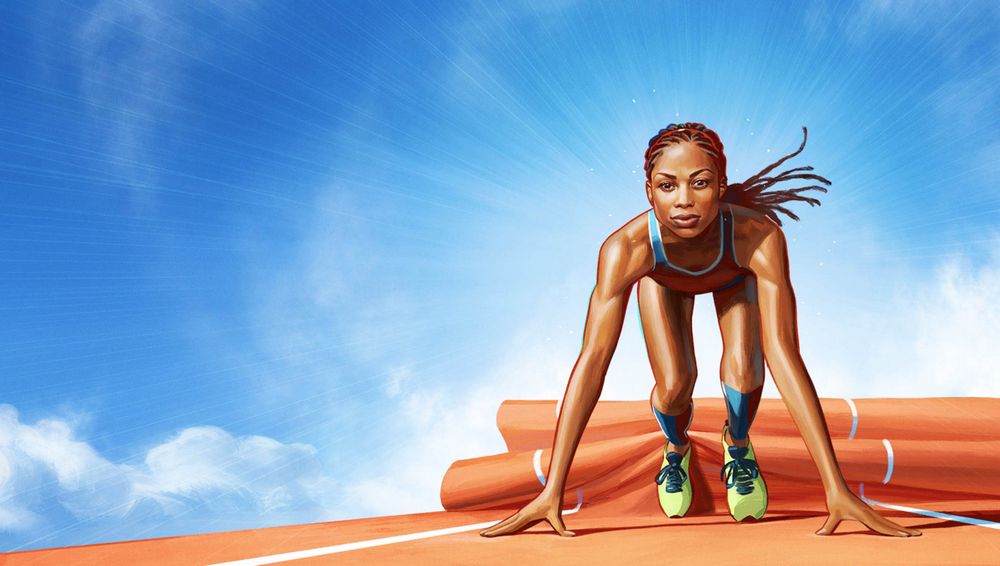
IOC, IPC and Airbnb announce Summer Festival of Olympian and Paralympian online experiences
- KICK OFF ON 24 JULY
The International Olympic Committee (IOC), the International Paralympic Committee (IPC) and Worldwide Olympic Partner Airbnb are announcing a five-day summer festival featuring more than 100 Olympian and Paralympian Online Experiences hosted virtually by some of the world’s best athletes. The festival of Olympian and Paralympian Online Experiences will kick off on 24 July, when the Olympic Games Tokyo 2020 were originally scheduled to begin, and is an opportunity for athletes to generate income while they share their passion for the Olympic and Paralympic Games and their sport with guests.
“The Olympic Games bring the whole world together and, whilst we will all have to wait one more year to celebrate in Tokyo, the Olympic flame continues to be the light at the end of the dark tunnel humankind is currently going through,” said IOC President Thomas Bach. “It demonstrates that we are stronger together. This festival is a great platform to unite and inspire the world in the spirit of friendship and solidarity this summer. The IOC puts the athletes at the heart of the Olympic Movement and supports them at every stage of their journey. We are delighted to collaborate with Airbnb to provide innovative economic empowerment opportunities for Olympic and Paralympic athletes around the world”.
Throughout the five days of programming across multiple time zones, the line-up will showcase a variety of interactive Online Experiences that guests can book on Airbnb from 22 July. Spectators can also watch select Online Experiences live or on replay on the Airbnb Olympic and Paralympic YouTube channels. While many hosts will continue to offer their activities after the event ends, like the art of reinvention with Olympian Simidele Adeagbo (skelton, Nigeria) and positive thinking with Paralympic hero Stephen Miller (athletics, Great Britain), several will be once-in-a-lifetime Online Experiences available exclusively during the festival*, like:
25 July: Build resilience to overcome obstacles with Yusra Mardini (swimming, IOC Refugee Olympic Team Rio 2016); learn about returning to sport after motherhood with Allyson Felix (athletics, USA); and work up a sweat in an inclusive session with Tatyana McFadden (athletics, USA)
26 July: Cook up a storm with legend Colin Jackson (athletics, Great Britain); join a scenic training ride with Jonny Brownlee (triathlon, Great Britain); discover velodrome secrets with Elia Viviani (track cycling, Italy)
27 July: Chat mind, body and spirit with Jackie Joyner-Kersee (athletics, USA); push through boundaries and level up in life with Meb Keflezighi (marathon, USA); get vulnerable to unlock greatness with Kerri Walsh Jennings (beach volleyball, USA); and Zumba beachside in paradise with Tom Hintnaus (athletics, Brazil)
28 July: Get a glimpse into quarantine training with two-time Grand Slam-winning Naomi Osaka (tennis, Japan); run, breathe and connect with a sprinter Zhenye Xie (athletics, China); learn a Grand Slam-inspired training regime with Sania Mirza (tennis, India); and master perseverance with Pita Taufatofua (taekwondo and cross-country skiing, Tonga)
29 July: Fall in love with sneaker culture with Rui Hachimura (basketball, Japan); get up close and personal at home with Jordy Smith (surfing, South Africa); see beyond the boundaries of vision with blind champion Lex Gillette (athletics, USA)
“At a time when it is difficult for people to gather and celebrate the exceptional performance of athletes, Airbnb is proud to host the summer festival, which is a new way to experience the Olympic and Paralympic spirit online,” said Airbnb Co-Founder Joe Gebbia. “Guests will be able to connect and interact with some of the most elite competitors within the Olympic and Paralympic Movement, giving them even more reasons to cheer them on next year.”
While the festival will give fans unprecedented global access to connect with athletes from over 20 countries and regions, all from the comfort of their homes, numerous Online Experiences in the line-up will also meaningfully promote:
Economic opportunities for athletes: Just as Online Experiences were launched as a way for hosts to earn money during the global pandemic, Olympian and Paralympian Online Experiences are a new platform to provide direct earning opportunities for athletes, underlining the efforts of the IOC, the IPC and Airbnb to support athletes, and to put them at the heart of the Olympic and Paralympic Movement.
Resilience through adversity: Numerous athlete hosts will inspire perseverance through their Online Experiences, like Yusra Mardini, the Syrian swimmer who became a member of the first ever IOC Refugee Olympic Team in 2016 and whose story became known for saving 20 lives with her sister, including their own lives, during a treacherous journey from Syria to find safety in Europe, who will host a one-off workshop on resilience. Another inspiring option is co-hosted by Tegla Loroupe, Chef de Mission for the IOC Refugee Olympic Team, and Rio 2016 Olympian, IOC Refugee Olympic Team hopeful for Tokyo 2020 James Chiengjiek Nyang, as they will transport guests virtually to the Tegla Loroupe Training Centre in Kenya. Tegla has been the guide and mentor to the IOC Refugee Olympic Team. Learn more about the IOC Refugee Olympic Team here.
The world-class hospitality of Japan: In addition to the Olympian and Paralympian Online Experiences, and as a way to celebrate Tokyo 2020, local hosts in Japan will offer guests a way to travel the country and explore its cultures and traditions from their living rooms. Through support from Shibuya City Tourism Association, local hosts will lead a package of unique online activities like Become a Ramen Expert and A Tour of Historic Shibuya. Other ways to be virtually transported to Japan will include Sake Secrets from Japan's Oldest Brewery and Explore Kyoto Where Unique Old Gods Live.
"Paralympians and Para athletes are masters of innovation and finding creative solutions to daily challenges they face,” said IPC President Andrew Parsons. "The summer festival of Olympian and Paralympian Online Experiences celebrates this tenacity and gives Para athletes a platform to share their stories to empower others, while also offering a new earning opportunity especially needed during these difficult times."
For more information on the summer festival line-up, visit airbnb.com/festival.
If fans miss the chance to participate in the five-day event, many athletes will continue to host their Experiences – both online and in person in countries where it’s safe and permissible to do so – with even more to be added to Airbnb in the coming months and years.
Olympic and Paralympic athletes who are interested in sharing their passions with guests to earn supplemental income can learn more and sign up to become a host here
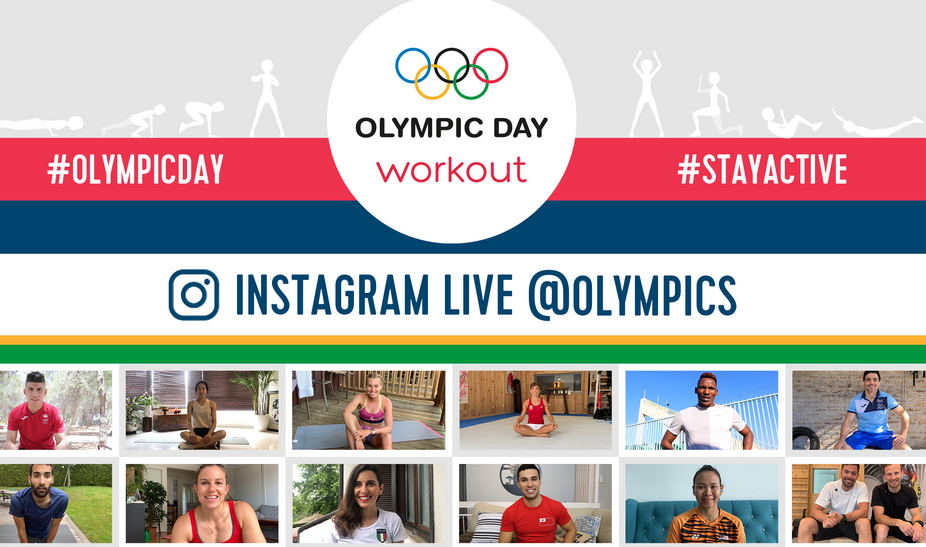
Olympic Day 2020, the world's biggest online olympic workout
- IOC
Olympic Day 2020 will see Olympians, athletes and fans all over the globe get active in the world’s largest 24-hour digital Olympic workout. Twenty-three Olympic athletes have already joined the recording of an official Olympic Day workout video, and on Olympic Day, athletes from around the world will lead live workouts at 11 a.m. local time across 20 time zones on @olympics Instagram live.
As the world gets ready to take part in #OlympicDay, Olympic champions, ranging from Kenya’s 1500m gold medallist Faith Kipyegon, to France’s most decorated Olympian of all-time, Martin Fourcade, teamed up with Tokyo 2020 hopefuls such as Dina Pouryounes, a taekwondo athlete hailing from Iran aiming to represent the Olympic Refugee Team, and the USA’s 13-time Paralympic gold medal-winning swimmer Jessica Long. (The full list of athletes can be found below.)
Since the COVID-19 pandemic forced the world into lockdown and the postponement of the Olympic Games Tokyo 2020, close to 5,000 Olympians have engaged with a remarkable 243 million people online across more than 50 countries in the IOC’s #StayStrong, #StayActive, #StayHealthy campaign by sharing their daily workouts and uplifting tips on how to stay healthy in body and mind. Olympic Day 2020 will take this campaign to the next level.
“Celebrating Olympic Day may feel very different from all previous years, but at the same time, on this Olympic Day, our message of the power of sport to bring hope and optimism to everyone resonates even stronger,” said IOC President Thomas Bach. “Let us join together to use this power of sport to prepare the postponed Olympic Games Tokyo 2020 as a moment of solidarity and resilience of humankind,” he added.
The entire Olympic Movement has been mobilised to join the online activities on 23 June. The IOC and its partners, including Olympic Games Organising Committees for Tokyo 2020, Beijing 2022, Paris 2024, Los Angeles 2028 and Milano-Cortina 2026, the National Olympic Committees (NOCs), International Federations (IFs), Worldwide Olympic Partners and rights-holding broadcasters, will be among those encouraging fans to join the virtual workouts.
For example, Worldwide Olympic Partners Coca-Cola, Samsung and Toyota have supported the campaign by encouraging their athlete ambassadors around the world to host workout sessions. In addition, Alibaba will support a #StayStrong live stream organised by the Chinese Olympic Committee and Beijing 2022, featuring over 350 Chinese athletes and medallists of different generations.
Follow all the action throughout the 24 hours on 23 June:
- Live workouts on @olympics Instagram at 11 a.m. local time in different time zones around the world, with locally relevant athletes hosting the live activations.
- A compilation workout video featuring 23 different Olympians from around the world showcasing their favourite workout moves will be available on the olympicchannel.com/olympicday
Olympic Day 2020 was always set to stand out in the event’s 72-year history. Commemorating the birth of the modern Olympic Games on 23 June 1894, Olympic Day was established in 1948 and is celebrated to promote participation in sport regardless of age, gender or athletic ability, as well as being an opportunity to celebrate the Olympic values around the world.
“We are all in the same situation right now,” added the IOC President, Thomas Bach. “With the global coronavirus crisis, all of us are living with much uncertainty about the future. In these difficult times, we need the values of sport, our shared Olympic values of excellence, friendship, respect and solidarity, more than ever. The Olympic flame can be the light at the end of the dark tunnel that we all find ourselves in now. On Olympic Day, we are sending this Olympic message to everybody. Please stay strong, stay active, stay healthy. In this Olympic spirit, I wish you all a wonderful Olympic Day 2020,” the President concluded.
The athletes involved in the Olympic Day workout video are:
- Laurie Hernandez (USA, artistic gymnastics)
- Faith Kipyegon (Kenya, athletics)
- Lutalo Muhammad (Great Britain, taekwondo)
- Sandra Sanchez (Spain, karate)
- Meli Derenalagi (Fiji, rugby 7s)
- Martin Fourcade (France, biathlon)
- Tokashiki Ramu (Japan, basketball)
- Eileen Gu (China, freestyle skiing)
- Colleen Quigley (USA, athletics)
- Zeyad Eashash (Jordan, boxing)
- Vinesh Phogat (India, wrestling)
- Tobias Wendel and Tobias Arlt (Germany, luge)
- Federico Molinari (Argentina, artistic gymnastics)
- Dina Pouryounes (Refugee, taekwondo)
- Valentina Marchei (Italy, figure skating)
- Pita Taufatofua (Tonga, taekwondo/cross-country skiing)
- Vivian Kong (Hong Kong China, fencing)
- Petra Klingler (Switzerland, sport climbing)
- Isaac Makwala (Botswana, athletics)
- Pandelela Rinong (Malaysia, diving)
- Agatha Rippel (Brazil, beach volleyball)
- Jessica Long (USA, para swimming)
The athletes lined up for the live Instagram workouts, scheduled at 11 a.m. local time across 20 time zones on @Olympics Instagram include:
- Pita Taufatofua (taekwondo/cross-country skiing) - Tonga
- Tyla Nathan-Wong (rugby 7s) - Wellington, New Zealand
- Melissa Wu (diving) - Brisbane, Australia
- Yamamoto Seito (athletics) - Tokyo, Japan
- Hong Zhang (speed skating) - Beijing, China
- Marcus Fernaldi Gideon, Anthony Ginting and Jonatan Christie (badminton) - Jakarta, Indonesia
- Elizabet Tursynbayeva (figure skating) - Kazakhstan
- PV Sindhu (badminton) - Hyderabad, India
- Aisam ul Haq Qureshi (tennis) - Pakistan
- Zeyad Eashash (boxing) - Amman, Jordan
- Margarita Mamun (rhythmic gymnastics) - Moscow, Russia
- Cameron van der Burgh (swimming) - Cape Town, South Africa
- Johanne Defay (surfing) - Europe
- Abdullah Sediqi (refugee scholarship holder, taekwondo) - Europe
- Desire Operanozie (football) - Lagos, Nigeria
- Cherif Fall (surfing) - Dakar, Senegal
- Hugo Calderano (table tennis) - Rio, Brazil
- Mikel Thomas (athletics) - Port of Spain, Trinidad and Tobago
- Rommel Pacheco (diving) - Mexico City, Mexico
- Natalie Spooner (ice hockey) - Calgary, Canada
- Kyla Ross (artistic gymnastics) - Los Angeles, USA
- TBC - Tahiti/Hawaii
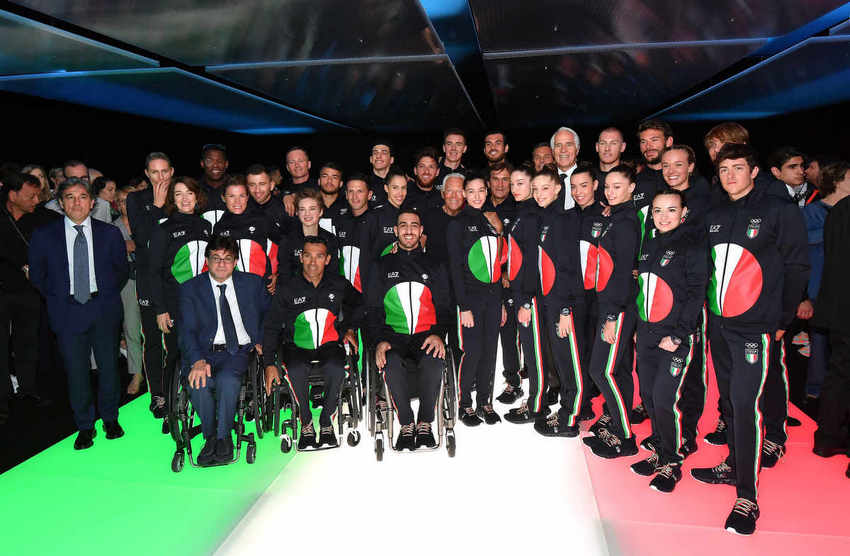
With Axpo Italia and Pulsee, the Italia Team is full of energy in view of Tokyo 2020
- NEW PARTNERSHIP
Axpo Italia and Pulsee are sponsors of the Italia Team for the 2020 Tokyo Olympics, the first to sign a post-Covid 19 agreement. The energy company, fourth in Italy and owner of Pulsee, a fully digital light and gas supply brand, has decided to directly support the Italian National Olympic Committee (CONI), signing an agreement as Official Partner.
The collaboration will start tomorrow (12th June), the day in which the first match of the Italian Cup is played - the same day on which the sport officially restarts in Italy, and on which Axpo Italia celebrates its first 20 years in Italy.The partnership will cover the run-up to the 2020 Tokyo Olympic Games and will culminate with the sporting event, which will take place in the Japanese capital from 23rd July to 8th August 2021.
Tomorrow will also see the launch of a communication campaign (media, TV, digital and press) dedicated to the new alliance rooting for Italy, and for the recovery of companies in Italy, which Axpo has been supporting for 20 years.
During the Games, Axpo Italia and Pulsee will also sponsor Casa Italia, headquarters of the Italia Team in Tokyo.
“This partnership is the beginning of a new phase. It is the first sponsorship contract signed by CONI after the beginning of the Coronavirus and is a very important sign of recovery and hope,” explained Giovanni Malagò, president of CONI. “We are proud to be supported by a company like Axpo Italia, and I hope that this association will give us a lot of good energy and enthusiasm and will bode well for a brighter future for all Italian sport to enable the achievement of even greater results”.
The partnership between Axpo Italia and CONI strengthens the energy company's long-standing commitment to the world of sport in Italy. Pulsee is, in fact, a sponsor of young sports talents, such as tennis players Matteo Berrettini and Lorenzo Sonego and alpine skier Elena Curtoni. Axpo Italia supports Italian sporting excellence such as Imoco Volley, an Italian women's volleyball club based in Conegliano that plays in the Serie A1 championship. It also supports other organisations including Legnano Basketball, Polisportiva Dinamo Sassari, Biella Basketball and Fortitudo Agrigento.
“We believe that sport plays an important role in life, and that's why we decided to start this great partnership. Dedication, tenacity and respect for others represent values that we try to constantly apply in our company, to grow both personally and professionally,” stressed Salvatore Pinto, president of Axpo Italia.
“The alliance with CONI consolidates the commitment that Axpo Italia has undertaken for years to promote sport. The project has a strong cultural value and, by accompanying the Italian Olympic team to the Olympics and supporting their journey, we want to get even closer to the community. Energy drives us to do our best every day, just like the athletes,” added Simone Demarchi, CEO of Axpo Italia.
Page 42 of 125


